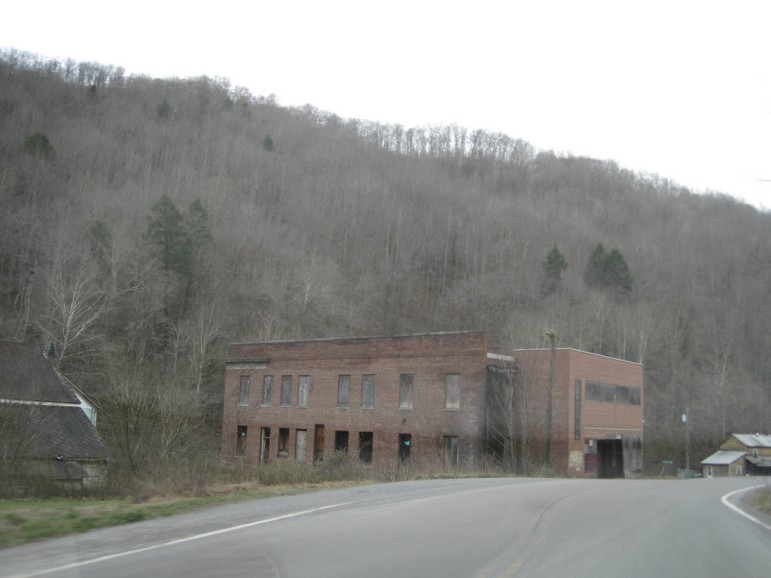
November 6, 2015; Washington Monthly
The editor of the Washington Monthly’s “Political Animal” blog, Ed Kilgore, writes about a partnership of nonprofit and public sector entities to attack poverty in McDowell County, a very poor part of Appalachian West Virginia, through the use of schools. Kilgore’s subject is the Reconnecting McDowell project, described by Emma Caitlin at Politico as “an organization trying to break the poverty cycle in the region by providing students with everything from a better education to mentoring to dental care.”
Kilgore discusses the project, led by the American Federation of Teachers, as beyond mere education. He notes that McDowell, long “emblematic of entrenched American poverty,” faces a rising poverty rate, a declining coal industry, significant population decline, and more. Importantly, he points out that “of the 353 most persistently poor counties in the United States—defined by Washington as having had a poverty rate above 20 percent in each of the past three decades—85 percent are rural.” These are rural poverty conditions that, sadly, have persisted since the publication of Michael Harrington’s The Other America.
The point is that educational improvements in McDowell County are not simply a matter of teaching technique, if they ever were at all. The education reformers’ fiction that there are changes in technology and teaching methodologies that can reverse conditions in desperately poor places like McDowell simply doesn’t relate to reality. As the Reconnecting McDowell project knows, the response requires taking up the conditions of poverty as well as the pedagogy of K-12 education.
Sign up for our free newsletters
Subscribe to NPQ's newsletters to have our top stories delivered directly to your inbox.
By signing up, you agree to our privacy policy and terms of use, and to receive messages from NPQ and our partners.
For example, Florisha McGuire, the principal at McDowell’s Southside K-8 elementary school, says that the school is the “poster child for bad health” due to conditions of type 2 diabetes, weight problems, and other factors. As a result, Greg Cruey, a teacher at Southside and the head of the local teachers’ union, emphasizes the objective of creating a school-based health clinic. A Reconnecting McDowell effort to boost third grade reading levels depends in part on getting kids to school, which means giving them the healthcare and other supports they need to be successful pupils. According to Gayle Manchin, the chair of Reconnecting McDowell, “It takes wraparound services. It takes economic development. It takes transportation. It takes our career tech centers. It takes people from all walks of life.”
The Kilgore article and the example of Reconnecting McDowell demonstrate a few key points about education and poverty.
- First, the teachers’ unions have a role to play, since their members are in touch with kids every day and see what the children need in order to function in school. In poor places like McDowell, the teachers know that health issues and other responses to poverty are critical obstacles to be overcome. This is in some ways a new kind of behavior, which should serve as an example to their urban and rural union counterparts.
- Second, responding to poverty, whether urban or rural, means addressing issues that affect more than just the children. For example, as Kilgore notes, one of the problems McDowell faces is a shortage of rental housing for teachers. Another is the significant increase in drug abuse in regions whose coal industries are in decline, affecting the stability of the parents sending their children to schools. Solutions for educational achievement for children require attention to the housing, jobs, transportation, and health issues facing the parents.
- And third, don’t think that rural poverty is restricted to conditions in Appalachia, the Southwest border, or Native American reservations. For example, Representative Sean Duffy, a Republican representing Wisconsin’s 7th congressional district, is hosting a program on housing and hunger issues in central Wisconsin that is scheduled to include participation from HUD Secretary Julian Castro. Duffy hopes to convey to Castro that poverty is as much a rural as an urban problem. In Kansas, where officials and academics tout the state’s progress from the depths of the Great Recession, economists note that the economic recovery has been focused on metropolitan Kansas City and Lawrence, while nonmetropolitan areas in south-central Kansas have lagged. Since 2000, 43 rural Kansan counties have seen increases in their rates poverty.
Reconnecting McDowell is a mechanism of partnership between the public sector, nonprofits, businesses, and unions, but it also reconnects all players to the reality that the problems in educational achievement will not be cured by imagining that narrow, education reform approaches can possibly address the pernicious impact of poverty. –Rick Cohen
Special thanks to NPQ Newswire writer Spencer Wells.












